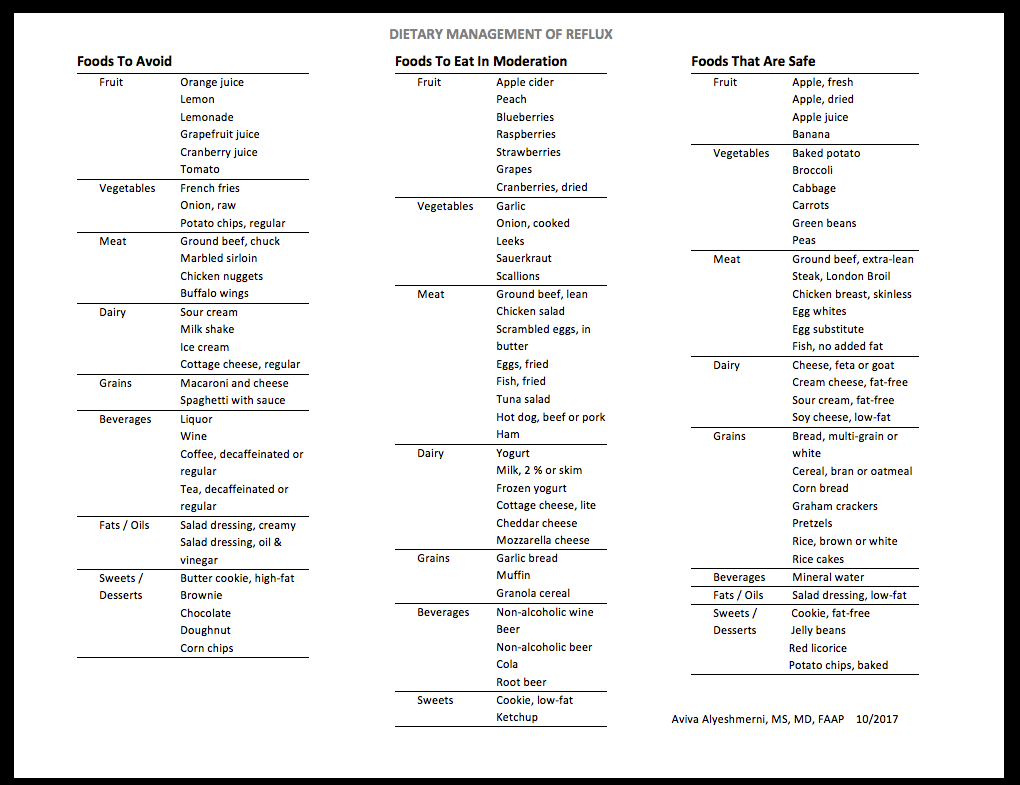Many infants and children manifest heartburn (acid reflux) differently. Read on for tips, foods to avoid, and when to see a doctor.
Some young children silently and painlessly regurgitate food minutes to hours after their last meal. Other children with mild to moderate distress tug at their ears, cough or clear their throat. Most commonly, reflux presents in the doctors office with stomach pain that happens after meals. If your child shows any of these patterns try the below to see if their behaviors and distress resolves.
- First and foremost keep a journal so that you can identify foods that are the triggers.
- Encourage your child to eat smaller and more frequent meals.
- Lastly, limit acidic and fatty foods, as well as known irritants of the lower esophageal sphincter.

Her are foods to avoid by category:
Veggies/Fruits:
- Orange juice
- Lemon
- Lemonade
- Grapefruit juice
- Cranberry Juice
- Tomato
- Spaghetti Sauce
- French Fries
- Onion
- Mint
Meat/Dairy:
- Ground Beef
- Marbled Sirloin
- Chicken Nuggets
- Buffalo Wings
- Sour Cream
- Milk Shake
- Ice Cream
- Cottage Cheese (regular)
- Macaroni & Cheese
- Salad Dressing (creamy)
Drinks/Sweets:
- Liquor
- Wine
- Coffee/Tea (decaffeinated or regular)
- Butter Cookie
- Brownie
- Chocolate
- Doughnuts
- Corn Chips
- Potato Chips
- Oil & Vinegar
Heartburn, or gastroesophageal reflux, is the sensation of stomach acid (and bile) moving into the esophagus.
Up to 10% of adults report daily symptoms to their doctor (likely a gross under-estimate). In contrast, 85% of infants vomit during the first week of life, and 60-70% manifest clinical gastroesophageal reflux at age 3-4 months.
Reflux will subside without treatment in 60% of infants by age 6 months, when these infants begin to assume an upright position and eat solid foods. Resolution of symptoms occurs in approximately 90% of infants by age 8-10 months.
Symptoms that persist after age 18 months suggest a higher likelihood of chronic gastroesophageal reflux. If your infant has spit up that fills an area larger than a post-it note, and spits up every feed, you need to consult your pediatrician.
If you have daily symptoms and have discontinued the foods above you should be seen by your physician. Connect with Dr. Vivi.

